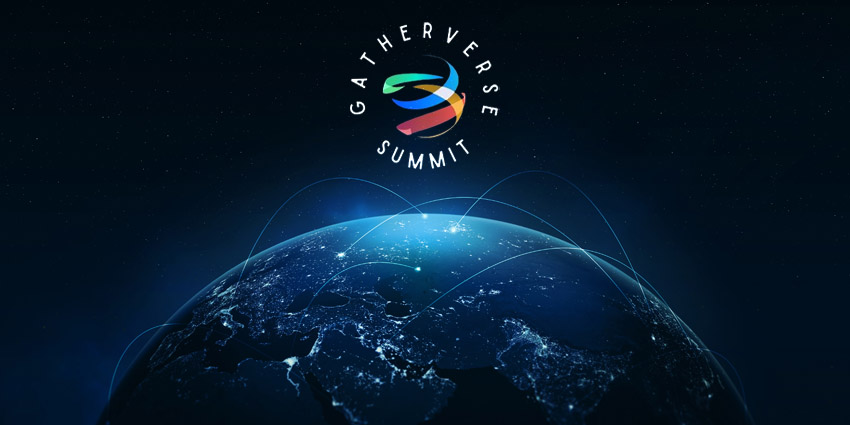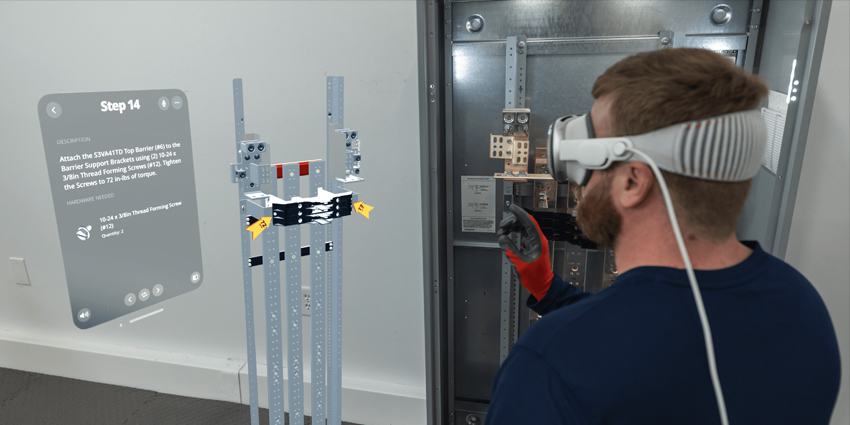The GatherVerse Summit took place from 22-25 February and offered a spectacular, inclusive list of expert presentations from across the extended reality (XR) sector from global executives, researchers, and experts in a bid to conceptualise the rise of the next iteration of the Internet.
Kent Bye, Producer for the Voices of VR podcast, offered audiences a highly-detailed and methodical approach to developing the Metaverse, using a list of insightful sources and research.
Bye’s work with the Voices of VR spans over 1,500 virtual reality professionals and pioneers since creating the podcast in May 2014, cataloguing the evolution of consumer-facing VR.
The Open Metaverse
Opening his presentation for the Summit, Bye defined the open Metaverse and the key players involved in its construction.
Citing Tim Sweeney, Chief Executive of Epic Games, Bye stated the open Metaverse would become a “real-time 3D(RT3D) social medium where people can create and engage in shared experiences as equal participants in an economy with social impact.”
3/ I gave one of the opening keynotes at the @Gatherverse on “Sensemaking Frameworks for
the #Metaverse & XR Ethics”It’s 90 minutes of content in 26 min.
Here’s the YouTube version of my talk:https://t.co/LIFfBTrAQ3
Here are my slides with citations:https://t.co/XJXiBDmqgg
— Kent Bye VoicesOfVR (@kentbye) February 22, 2022
An open Metaverse would require a “massively scaled and interoperable network of RT3D virtual worlds” experienced “synchronously and persistently” but with unlimited users with individual presences, Bye outlined in his presentation.
The platform would also allow continuity of data such as “identity, history, entitlements, objects, communications, and payments,” Bye added.
He also cited Lawrence Lessig, US Attorney and political activist, who created his Pathetic Dot Theory in 1998 on how activity in the Metaverse would operate on a framework of cultural norms, law, market dynamics, and underlying technological architecture of coding, leading to the user experience.
5/ @vrleader gives a bit of the backstory & intention for creating the @Gatherverse Summit, & the desire to cultivate a community interested in XR Ethics:https://t.co/G6iFosO4OA
Free Registration here where the talks are being archived.https://t.co/UfoOL1Kr4B pic.twitter.com/3DlXf9tJOG
— Kent Bye VoicesOfVR (@kentbye) February 22, 2022
Speaking further, he explained how GatherVerse Founder Christopher Lafayette focused on ethical aspects of the Metaverse, and how Unity Technology’s Tony Parisi created the Seven Rules of the Metaverse as both experts aimed to build an inclusive, interoperable, and decentralised platform.
Theorists such as Matthew Ball outlined the economic significance and material development of the Metaverse via numerous technologies and industries.
Ball wrote in his ‘Framework for the Metaverse’ essay,
“The Metaverse is best understood as ‘a quasi-successor state to the mobile internet’. This is because the Metaverse will not fundamentally replace the internet, but instead build upon and iteratively transform it”
Firms such as Meta Platforms Inc and Microsoft had also contributed significantly to the development of the Metaverse with ethics, robotics, architecture, infrastructure, and headsets, he said.
Additional entities such as Niantic’s AR-based Lightship application programme interface (API) and Jasmine Roberts, Senior AR Software Engineer for Google, discussed the Metaverse from an engineering perspective, contributing to the numerous approaches to building the Metaverse, Bye noted.
Holistically, participation from the entire XR community would eventually lead to a future Metaverse capable of fulfilling the needs of its users, based on a pluralistic approach to its creation, he stressed.
Pluralistic Approach to Building the Metaverse
Speaking further on the need for a pluralistic approach to the Metaverse, where multiple perspectives would construct and evolve the platform, Kent Bye explained,
“In this way, I wanted to say a few words about the value of pluralism, because as I look at all these different frameworks, it’s important to remember that the map is not the territory […] So in thinking about how that applies, here, you can think of it the metaphor of lots of people who are blindfolded on an elephant, and they each have a specific insight. So each framework is revealing some information about something but it’s also concealing other things”
Comprehensive additions to the Metaverse such as foreign logical aspects of context quality, character, and story for virtual experiences, intersectionalism, and other ethical frameworks could allow XR advocates to develop future structures for activities on the rising spatial communications platform.
The GatherVerse event was launched in 2021 and aims to unite the global XR community to discuss, document, and share “human-centered approaches to the [Metaverse]”.
The event aims to gather technical and non-technical experts, thought leaders, and practitioners across the sector to discuss how to build a “humanity-first” Metaverse, both in-person and online.
Speakers and panellists for the massive online event included Christopher Lafayette, GatherVerse Summit Founder and Founder of The Black Technology Mentorship Program, Dr Muhsinah L Morris, Project Manager for Morehouse in the Metaverse, Rosario B Casas, Co-Founder and Chief Executive for XR Americas, Sonya Seddarasan, Founder of UPWorlds, Chris Wrobel, Chief Executive and Founder of Virbe, Nanea Reeves, Co-Founder and Chief Executive of TRIPP, Dr Thomas A Furness III, Founder and Chairman of the Virtual World Society, and dozens more.
HP and Meta were premier sponsors for the Summit, along with community sponsors Women’s XR Fund (WXRF). Community partners such as the Virtual World Society, Immerse Global Summit, AWE.LIVE, Guiding Light, The Linux Foundation, and XR Access and many others joined the event.







